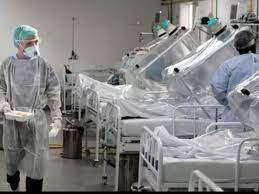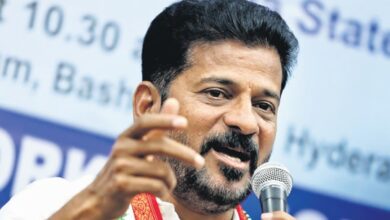“Mental Health, Where’s The Time Anyway?”: A Common Narrative From Indian Physicians
You must get beaten up at least once in order to become a doctor, according to the saying “Ek baar to maar khana his padega warna doctor kaise banoge.”
These are the precise words that many prospective physicians join the field believing, and they are often repeated at medical schools. Doctors have one of the toughest jobs, and sometimes their efforts go unappreciated. From treating patients with the most severe diseases to rushing bodies shredded by accidents, blasts, and gunshots to emergency rooms, healing those in excruciating pain, and breaking heartbreaking news to families, doctors have one of the hardest jobs. The amount of news stories involving physicians being mistreated, assaulted, stabbed, or murdered is increasing every day. Being harassed definitely has an impact on someone’s mental health, especially in a situation where their life rests on their decisions. But do they even have the time to consider their mental health after working for hours, if not days, nonstop?
Although physicians may be familiar with the phrases depression, stress, anxiety, and burnout, they often ignore these symptoms when it comes to their own health in order to concentrate on treating patients and saving lives.
According to Dr. Bhaskar Das, a psychiatrist at NRS Medical College and Hospital in Kolkata, “there are days when we have had to be on duty for more than 24 hours…once I had to be on duty at a continuous stretch for 56 hours in the labor room.” How can one prioritize their mental health above the patient whose life is in their hands in such stressful circumstances?
India’s medical community is overworked. More than 80% of physicians, according to a poll by the Indian Medical Association (IMA), are overworked and anxious, with 46.3 percent citing fear of violence as their top stressor. At least 75% of physicians in India have experienced some kind of violence, usually from the families of the patients.
When I was a student at RG Kar Medical College, there was one incidence. A patient had passed away as a result of the lack of blood. When a patient requires blood from the blood bank at a government hospital, their attendant is supposed to be there, but nobody was. After the patient passed away, the patient’s family charged the physicians, and one of them made an attempt to strike me, the doctor claims.
Doctors are the primary point of contact and their only chance for saving their loved ones for patients’ families, particularly in rural areas of the nation where many are uneducated. However, they often overlook the fact that the doctor’s only responsibility is to treat the patient; they are not responsible for handling the formalities and logistics that come before therapy.
Violence against physicians and other medical personnel is a problem that is brought on by a number of things, including inadequate management, expensive and underfunded systems, and the growing commercialization of private hospitals. Doctors require legal protection in this circumstance to cope with verbal and physical assault, but this protection has been denied to them on the national level.
The Determinant
A communication gap often exists between the patient’s family or caregiver and the medical team. Therefore, even if we explain the cause of a patient’s death to their family, they usually do not want to hear what we have to say since they are usually in too much shock to do so. Therefore, they attack us,” Dr. Bhaskar says.
He continues by saying that the main reason for the surge in assaults on physicians is because we have not yet been able to close the communication gap between patients and doctors.
These instances occur in part as a result of patient attendants and in part as a result of how hospitals are managed and administered.
A recent graduate interning at the North Bengal Medical College (NBMC), Dr. Ashar, expresses a similar worry but claims that there is no way to avoid these circumstances. “We work incredibly long hours and have gotten used to it because we are so short-staffed, especially at government hospitals.” He claims that the excessive workload forces them to operate in an almost robotic manner, devoid of emotion even in dire circumstances like fatalities.
The rising indifference among young physicians, which has become a serious worry globally, is partly our fault. My response will be very different from yours if I see a patient die in front of me, says Dr. Ashar, who also notes that they rarely have enough patients to care for at once to be able to follow the World Health Organization’s guidelines for breaking the news to a grieving family.
Because of the brutal nature of their work, physicians sometimes lack empathy and may even come out as unpleasant, which incenses the patient’s attendant or family.
We tell families a memorized line that we must repeat so often that we lose empathy for their feelings: “All we can say is that we tried, the patient could not be revived, the patient is no longer, and you may remove the corpse in four hours. When that occurs, the family sometimes think we are impolite and may not have done enough to preserve their loved one, he adds.
He continues, “A single wrong word can agitate the patient’s family and they’ll come lashing at us.”
Gender Inequity
Female physicians struggle to be taken seriously when men doctors are in charge of physical violence. Being recognized as a doctor, according to Dr. Sejuta Saha of Kothari Medical Centre, is her hardest challenge with patients and their families. Although I’ve been fortunate enough to avoid any instances of physical assault, I often experience harassment and discrimination based on my gender.
Dr. Sejuta claims that most patients and families do not even think of her as a doctor due of the fact that she is a woman.
“As physicians, we are never appreciated. We are either their nurses or simply some group personnel, depending. In other instances, despite dealing with the patient from beginning to finish, they haven’t even called us physicians when it comes to acknowledgment. We are a “sister” or “nurse” to them, she continues.
Suppression of Mental Health
When asked whether or not aspiring professionals receive training to handle such circumstances, Dr. Ashar laughs and responds that despite the rapid change in the medical curriculum, he has not heard of any juniors who have received any kind of training to handle violence and harassment from patient families.
Seniors often remind younger people how to prepare for hospitals, according to Dr. Ashar, saying things like, “You have to be beaten up to become a doctor.”
There is no special forum for physicians and other medical professionals to discuss their mental health and wellbeing, Dr. Bhaskar notes. “Until recently, there hasn’t been a plan or program developed for physicians to manage their mental health. The prevalence of suicide among young physicians is rising as a result of burnout and strain, thus it is crucial to look into this. During their internships, they rapidly lose weight and have little opportunity to see their family or parents, he claims.
All of them said that, despite being overworked and underpaid, India’s doctors continue to place the least importance on mental health. Studies from all around the globe indicate that since they often experience the worst effects of the occupational hazard of overwork, healthcare professionals, particularly resident physicians and trainees, are more likely to acquire mental health issues including depression, anxiety, and drug misuse. But much like every other industry, the medical community desperately needs a work-life balance.
In the medical industry, burnout, suicides, and mental health problems are twice as frequent as elsewhere. Ironically, there is little literature now available on the psychological issues experienced by physicians and other healthcare professionals.
In addition, a growing number of would-be physicians are staying away from the medical industry due to their fear of violence. If this keeps happening, according to Dr. Bhaskar, “India will experience a shortage of doctors in the future because the younger generations who are just entering the field now want to go abroad and practice somewhere else,” Additionally, many people are completely leaving the field, and students in medical institutions have ceased enrolling in electives that require them to engage with patients.
Even the top-scoring students on the AIIMS list this year did not take any specialized classes; instead, they all took general education courses to avoid awkward situations, the author claims.
It is essential that the health system in a large nation like India respects people’s dignity, that they are not subjected to abuse for doing their duties first, and that they are not subjected to beatings.







